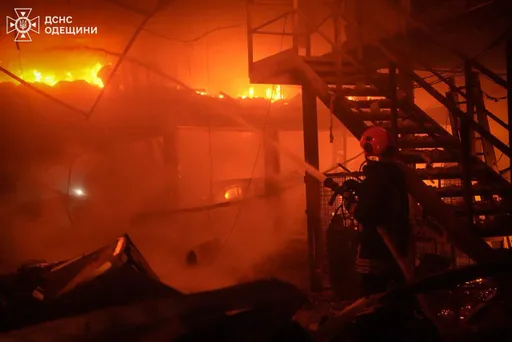Lebanon’s economic and financial collapse has left the majority of an estimated 1.5 million Syrian refugees in the country unable to afford the bare minimum they need to merely survive, UN agencies have warned.
A yearly vulnerability assessment report conducted by the UN’s Refugee Agency (UNHCR), the World Food Programme (WFP), and UNICEF found that nine out of ten Syrian refugees in Lebanon live in extreme poverty as the price of food and essential commodities skyrockets, and unemployment rises. The full study will be published in December.
“Mere survival has become out of reach for Syrian refugees,” UNHCR’s Paula Barrachina Esteban told TRT World from Beirut, explaining the findings show that almost the entire Syrian refugee population is unable to afford an essential food basket.
“We’re not talking about living with dignity, having all their needs covered. It's just the minimum amount for survival,” Barrachina Esteban added.
Lebanon’s inflation rate has skyrocketed since its financial collapse in October 2019 and is now the highest in the world, according to Bloomberg data. The Lebanese pound has lost nearly 90 percent of its value, plunging three quarters of its population into poverty. Between October 2019 and June 2021, the cost of food increased by 404 per cent.
The Beirut port blast last year added further complexity to the socio-economic and political crisis, and the Covid-19 lockdowns only exacerbated it.
The recent removal of subsidies on fuel and some medicine further compounded the crisis. As a result, many residents could not afford basic goods, and hospitals had to ration their services and prioritise patients.
“Families really need to constantly reprioritise what they spend money on,” Elena Dikomitis, advocacy manager at the Norwegian Refugee Council (NRC), an NGO that works with Syrian refugees in Lebanon, told TRT World. She stressed that vulnerable Lebanese families alongside migrant and refugee communities are hardest hit by the economic collapse, which has also thrust many middle-class Lebanese into poverty.
“We see many families having to delay critical health care, and resort to crisis-coping strategies or food coping strategies, which means they essentially skip meals to be able to make ends meet.”
Child labour and marriage as coping strategies
Child labour and marriage are on the rise among Syrian refugees as families try to cope with dire living conditions. Lebanon, which hosts the highest number of refugees per capita in the world, has in recent years been introducing measures to curb new arrivals from the war-torn country and coerce those already in Lebanon to return.
Children have been left particularly vulnerable: according to the data collected, primary school attendance for Syrian refugee children between 6 and 14 years old dropped by 25 percent in 2021, while nearly 28,000 children are engaged in child labour. In addition, one out of five girls aged 15 to 19 is married.
Many live in temporary housing and are in low-paying and informal jobs, for which they are increasingly competing with locals amid a dearth of opportunities and resources.
“Poor Lebanese are basically now looking for the same type of jobs that were typically the ones that refugees would occupy as informal labour,” Dikomitis said.
“The vulnerability of the Lebanese is also having a knock-on effect on refugees, who were already struggling massively before this crisis hit.”
Families at risk of eviction ahead of winter
Humanitarian workers are also concerned about the increased risk of evictions ahead of the cold winter months as more and more families will be unable to afford rent. The study says that the average rent price has increased, while almost 60 percent of Syrian refugee families are living in dangerous, substandard or overcrowded shelters.
According to Dikomitis, increased tensions within communities may also increase the risk of eviction. Across the country, citizens and refugees alike are likely to find themselves unable to keep warm due to the high fuel price.
“We'll definitely see people struggling to keep themselves warm and to keep their children healthy when the temperature starts to drop in the coming months,” Dikomitis said.























